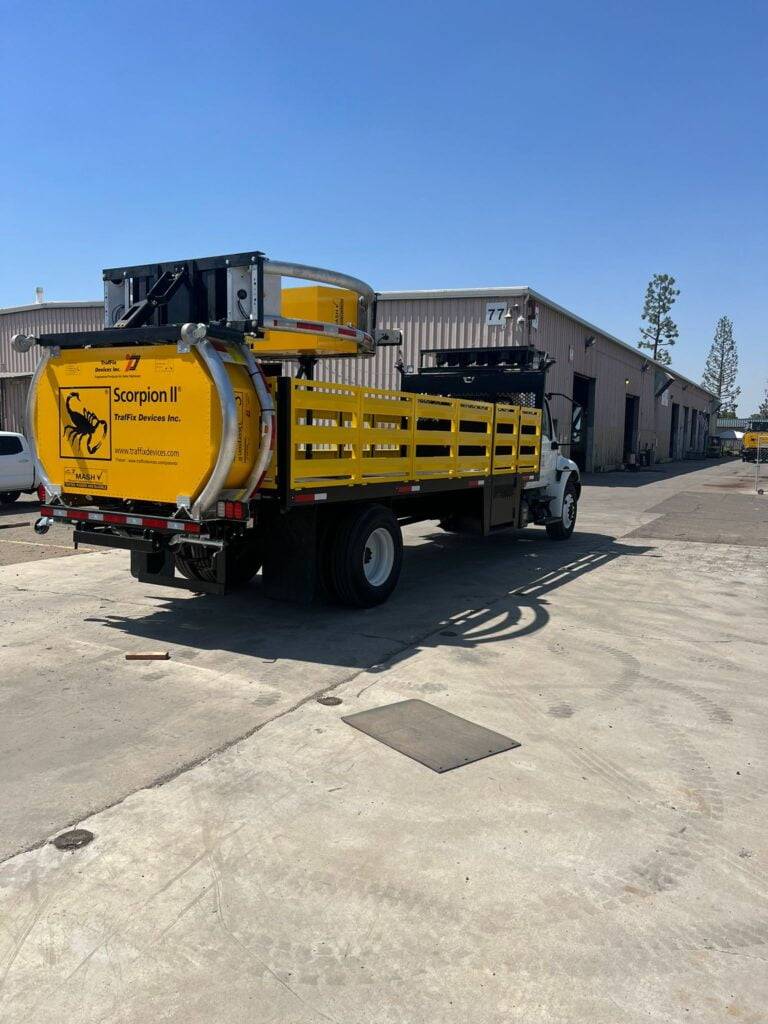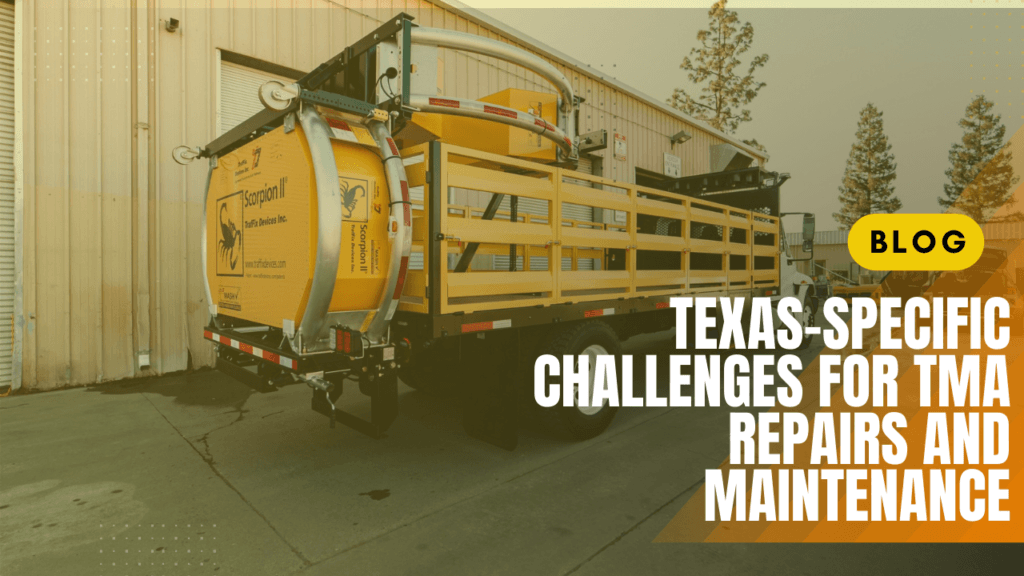Truck-mounted attenuators (TMAs) are vital safety tools for protecting road workers and drivers, particularly on high-speed roads. In Texas, where extreme heat, an extensive roadway network, and varying terrain create unique conditions, maintaining TMAs in optimal working order presents specific challenges. Upholding safety standards on Texas roads demands ongoing repairs, specialized maintenance, and adherence to tailored Maintenance Strategies for TMAs in Texas that account for these conditions.
This article explores the impact of Texas-specific challenges on TMA repairs, maintenance, and regulatory compliance, along with practical solutions via Maintenance Strategies for TMAs in Texas.

1. Extreme Heat: Impact on TMA Equipment
Texas is renowned for its scorching summer heat, with temperatures often reaching 100°F or more. High temperatures can adversely affect TMA components, especially those exposed to prolonged sunlight.
- Material degradation: Excessive heat accelerates wear on rubber parts, making them brittle and prone to cracking.
- Hydraulic system vulnerabilities: Heat can thin hydraulic fluid, reducing efficiency and increasing the risk of leaks.
- Electronic failures: Overheating can cause malfunctions in electrical components, leading to frequent repairs or replacements.
Solutions: Conduct regular inspections during peak heat months to identify early signs of degradation, leaks, or electrical issues. Invest in UV-protected materials, heat-resistant hydraulic fluid, and weatherproof electronics to enhance durability.
2. Increased Wear on Long Highway Stretches
Texas boasts one of the nation’s largest highway systems, featuring extensive stretches of high-speed roads where TMAs are critical for protecting road crews. High usage rates on these highways lead to faster wear and tear.
- Highway vibration: Constant vibration from high-speed travel loosens bolts, wears out bearings, and stresses components.
- Increased impact risk: Long stretches of unbroken highway present a higher likelihood of collision impacts.
Solutions: Implement maintenance schedules based on mileage or usage hours to proactively address potential issues. Use vibration-dampening materials and heavy-duty bolts to minimize wear and extend component lifespan.
3. Diverse Terrain and Road Conditions
Texas’s diverse terrain, from West Texas plains to the hilly regions around Austin, presents unique challenges for TMAs.
- Uneven terrain: Hilly or rough roads strain mounting systems, potentially destabilizing TMAs.
- Road debris: Unpaved or debris-filled areas can cause accelerated wear on tires and impact-absorbing components.
Solutions: Equip TMAs with adjustable suspension systems to handle varying terrains. Use reinforced undercarriages and skid plates to protect critical components from debris damage.
4. Texas-Specific TMA Regulations
The Texas Department of Transportation (TxDOT) enforces specific regulations governing the operation and maintenance of TMAs to ensure safety compliance.
- TMAs must meet TxDOT’s impact performance criteria, which dictate the type and application of TMAs on state roadways.
- Certified technicians are required for TMA repairs on high-speed or high-traffic highways.
- Regular inspections for wear, hydraulic operation, and overall performance are mandated to meet safety standards.
Solutions: Partner with repair providers familiar with TxDOT standards to ensure compliance. Ensure technicians have the necessary certifications for TMA maintenance and repairs.
Maintenance Strategies for TMAs in Texas: The Benefits of a Tailored Maintenance Program
A customized maintenance program designed for Texas’s unique conditions offers significant benefits:
- Enhanced reliability of TMAs, reducing equipment downtime and accident risk.
- Cost savings through proactive maintenance that prevents costly failures and emergency repairs.
- Extended equipment lifespan, maximizing investment value by addressing heat, mileage, and terrain challenges.
In conclusion, maintaining TMAs in Texas requires more than basic repairs, they require Maintenance Strategies for TMAs in Texas. Extreme temperatures, extensive highways, and diverse geography demand a tailored approach to ensure optimal performance and longevity. By addressing these challenges and adhering to Texas-specific regulations, road safety officials can maintain TMAs to protect workers and the traveling public effectively.
For professional TMA repairs and maintenance tailored to Texas’s unique road conditions, contact Western Highways Traffic Safety, or visit us at our Location.




